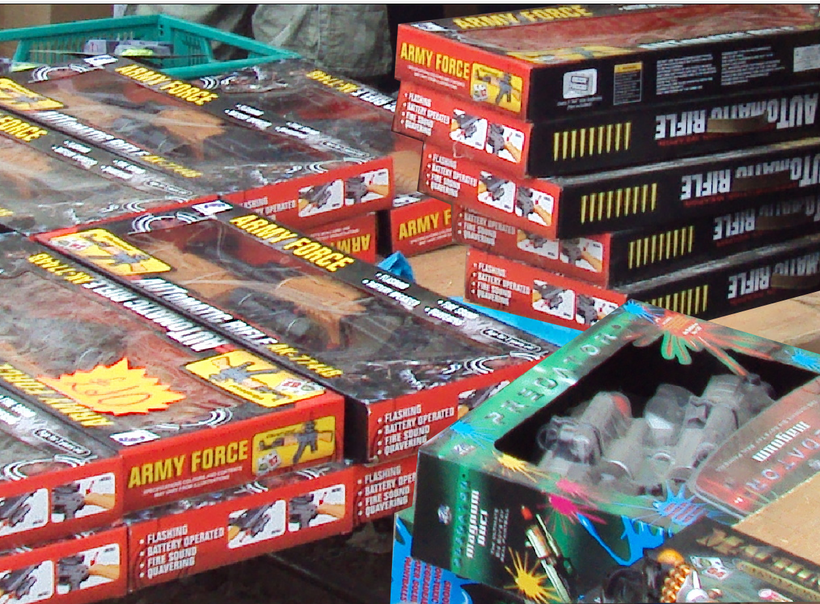DIY gun amnesty
What can parents who oppose militarism do when the children are enthusiastic for toy weapons? When the McConnell family returned to Britain from a country affected by real war, they found a creative solution.

We left a country pulled at the seams by guns, guerrillas and war. We returned to a peaceful, grey and yawning English autumn.
There we had spent our days swimming in pools, playing cricket in sandy streets, and sitting on makeshift boats when the monsoon floods began to rise. Here in England, the games and fun to be had were different. The little girls had dolls and polly pockets. The boys had action men and toy guns. Cowboys and Indians, James Bond, and battling reigned supreme.
[QUOTE-START]
My Dad mumbled about the guns to my mother. He questioned us having them, troubled by our making a game of the war we had not so long left.
[QUOTE-END]
My brothers, older than me but still children, quickly acquired swords at a castle here, plastic guns at a waterpark there. Sometimes moulded realistically, and sometimes in fantastically bright plastics, these would-be weapons were the interactional games of this new, British childhood and they were fun.
My Dad mumbled about the guns to my mother. He questioned us having them, troubled by our making a game of the war we had not so long left.
One day a box appeared. He announced there was to be an amnesty. He said that for every weapon we put in the box, we would get another (better) toy. We talked about why this was happening but, in the end, it was our choice. I don't remember there being any pressure, I think one of us even kept a wooden sword from Alnwick Castle. But mostly we turned in our pretend weapons and delighted in the treats which emerged.
The fruits of this engagement were not limited to these new toys – we also gained a way of talking about war and weapons and found a new, reflective understanding.